

FEDERAL GOVT PL ANS RS1TR DEVELOPMENT
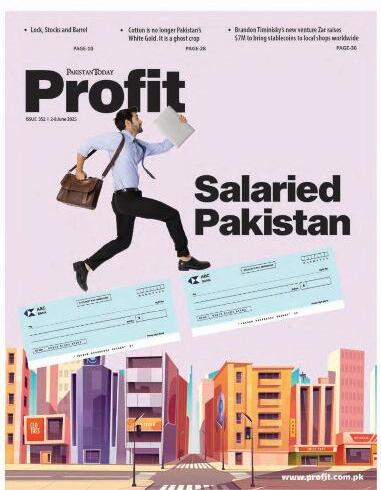
TGovt sets 4.2% GDP growth target for FY26 amid tight development budget: Ahsan Iqbal
ment Ahsan Iqbal on Monday announced that the government has set a GDP growth target of 4 2% for fiscal year 2025–26 as it unveiled a scaleddown development plan constrained by severe funding limitations Speaking to the media after the Annual Plan Coordination Committee (APCC) meeting in Islamabad Iqbal revealed that over 118 projects collectively worth Rs1 trillion have been shelved due to the lack of fiscal space in next year s Public Sector Development Programme (PSDP)
“This year ’s development budget has been set at Rs1 000 billion It
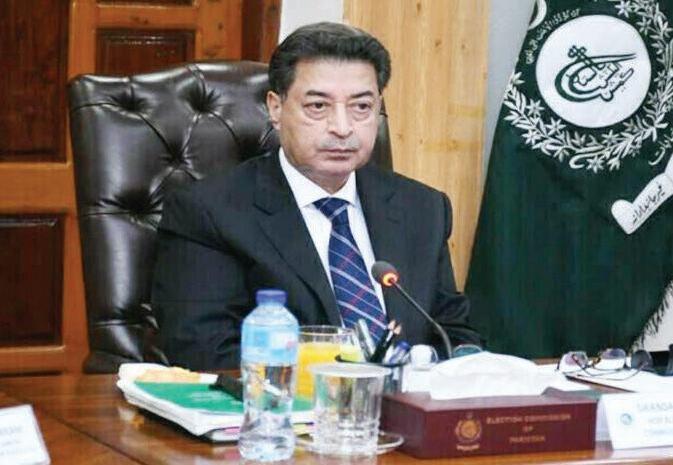
in the upcoming budget for the 202526 fiscal year Under directives from Prime Minister Shehbaz Sharif, the government aims to ease the tax burden on individuals earning regular salaries by lowering tax rates by 1 to 1 5 percentage points Dawn reported citing sources The adjustment, while modest, signals the government s intention to begin addressing the concerns of the salaried class who have long faced higher tax rates According to the Salaried Class Alliance of Pakistan (SCAP), the contribution of salaried individuals to Pakistan s tax revenue in the 2024-25 fiscal year is expected to be five times higher than that of exporters and retailers The FBR collected Rs430 billion in income tax from salaried individuals during the first ten months of the fiscal year 2024-25 In a pre-budget meeting held
last week Finance Minister Muhammad Aurangzeb stated that the government plans to shift the tax burden away from the salaried class and the documented sector This shift will involve encouraging greater use of digital payments as part of an ongoing effort to transition the economy towards a cashless system Aurangzeb suggested that the upcoming budget would introduce measures to promote digital transactions which would help increase documented business activities and reduce the reliance on cash During a public address later that week, the finance minister further emphasized that the forthcoming budget would introduce bold measures aimed at steering Pakistan s economy in a more strategic direction These measures are expected to include steps that not only ease the tax burden but also push for greater financial inclusion through digital solutions
According to a report by The News, Pakistan is nearing an agreement with the International Monetary Fund (IMF) on tax re-
lief for the salaried class although meeting the ambitious revenue target of Rs14 2 trillion will remain a challenge
provide
relief of Rs56-60 billion for salaried individuals in


Tex tile expor ters c all for polic y reversal to safeguard $9 billion value -added industr y
The
(PRGMEA) and the Pakistan Hosiery Manufacturers and Exporters Association (PHMA) urged the government to take immediate action to address tariff-related barriers and restrictive policies that have according to the associations, been hindering trade and supply operations
The letter outlines four main areas that
require urgent attention in the upcoming fiscal year ’s budget The associations expressed concern that changes to the Export Facilitation Scheme (EFS) have had an adverse effect on small and medium-sized enterprises (SMEs), calling for the restoration of the original scheme to ensure international competitiveness and stability in the sector They argued that the new scheme in its current form has been detrimental to SMEs which play a key role in the value-added textile industry
The exporters also emphasized the importance of reinstating the exporters’ final tax regime, which they say would reduce compliance costs minimize administrative burdens and help SMEs maintain financial stability in these challenging times
The associations urged Prime Minister Sharif to instruct the Federal Board of
Revenue (FBR) to issue automated and expedited sales tax and customs rebates along with reimbursements for the Drawback of Local Taxes and Levies (DLTL) and Duty Drawback of Taxes (DDT), in an effort to improve liquidity for exporters
Another key demand was the unconditional continuation of DLTL through a simple paperless process aimed at reducing the financial strain on exporters who have been facing severe liquidity issues
Exporters believe that continued access to DLTL would help ease cash flow concerns and allow businesses to remain competitive in international markets
Furthermore the associations called for the government to engage in productive negotiations for a zero-for-zero apparel tariff agreement with the United States The aim of such an agreement
would be to lower Pakistan’s current apparel tariff of 29% thereby boosting export competitiveness and providing the textile sector with the opportunity to expand in new international markets
The letter warned that failure to act quickly on these demands could lead to the widespread closure of export units, foreign exchange losses and rising unemployment which would have dire consequences for the country s economy
The letter concluded by emphasising the critical importance of addressing these issues promptly to protect Pakistan’s largest employment-generating export sector and to support the government’s goal of reaching $100 billion in exports The associations have urged the government to act swiftly to safeguard the industry and prevent further damage to the textile sector
FBR considers raising tax on interest income as par t of IMF-backed relief measures
den those reliant on interest income from their savings particularly in light of already declining returns from banks due to lower policy rates In contrast, industries such as tobacco and beverages have raised concerns over their shrinking volumes, with a shift towards untaxed products
for the proposal However tax experts expressed concerns about the potential impact of the proposed tax increase They warned that a higher tax rate would further bur-
The beverage industry has proposed a reduction in the Federal Excise Duty (FED) from 20% to 15% to encourage tax compliance, while the tobacco sector anticipates a decrease in its contribution to tax revenues As discussions continue the FBR is under pressure to find solutions that address the revenue gap while balancing the concerns of both the IMF and key sectors of the economy
federal
Coordination Committee (APCC) today [Monday] to approve the national devel-
opment budget which includes development allocations for the federal government all provincial governments and special areas While the federal Public Sector Development Programme (PSDP) has been reduced by Rs400 billion to Rs1 trillion, the four provincial governments are set to increase their combined spending by 28% with a total of Rs2 8 trillion planned for the year This marks an increase of Rs609 billion from the previous year s budget The budget will set an economic growth target of 4

PAKISTAN’S INFL ATION RISES TO 3.5% IN MAY AMID FADING BASE EFFECT
590 77 by midday reflecting broad-based buying across key sectors By 1:35pm the index was still holding firm at 120 326 81 up 635 72 points or 0 53%, with momentum driven by investor optimism in cement, banking, oil and gas, refineries, and fertilizers Major index movers during the rally included PRL HUBCO PSO SNGPL MARI OGDC POL and PPL all trading firmly in the green during the first half However, late-session profit-taking wiped out earlier gains, pulling the market into negative territory The index eventually closed near its intraday low of 118 672 84 with total trading volume for the benchmark standing at 164 32 million shares Out of the 100 index constituents, 72 ended lower, 26 posted gains, and 2 remained unchanged Systems Limited (SYS) was the biggest drag on the index falling 4 98% and slashing 172 17 points Other major negative contributors included Engro Corporation (-103 09 points), Pakistan Petroleum (-66 21), Fauji Fertilizer Company (-57 10), and Lucky Cement (-56 58) In contrast Pakgen Power (PKGP) hit its upper circuit with a 10% gain adding 70 42 points to the index National Foods (NATF) Engro Polymer (EPCL), PGLC, and Ghani Global Glass (GHGL) were also among the top gainers, collectively adding modest upward pressure Sectoral analysis showed that Technology & Communication (-197 75 points) Cement (-189 30) Oil & Gas
Exploration (-133 52) Fertilizer (112 74) and Investment-related stocks (106 47) led the market decline These losses overshadowed gains seen in Food & Personal Care Products (+35 91), Power (+35 27), Glass & Ceramics (+27 85), Commercial Banks (+18 18), and Chemicals (+10 14) The early optimism was partly driven by expectations that the upcoming federal budget may offer clarity on taxes and economic direction, following a week where the market posted a mild recovery Last week, the KSE-100 had gained 588 points (0 49%) to close at 119 691 amid improving macroeconomic signals and a perception of policy stability Yet lingering concerns about fiscal tightening and revenue measures in the upcoming budget announcement continue to weigh on investor sentiment Analysts believe the index will remain sensitive to developments related to the federal budget which could trigger further bouts of volatility in the days ahead
FBR collec ts Rs240 billion from tobacco sec tor,
disputes industr y claims of revenue decline
anticipated Rs285 billion revenue aligns closely with figures from the previous fiscal year The increase in tobacco tax revenue raises questions about the industry’s push for lower taxes suggesting that it may be manipulating figures to influence policy decisions Sources claim that the industry
rately reflecting the actual market share or consumption of these illicit brands
Further analysis by the Social Policy and Development Centre (SPDC) showed that 80% of the market share belongs to the top 15 cigarette brands 13 of which are registered with the FBR Illicit trade, including both smuggled and locally manufactured cigarettes, accounts for approximately 33 2% of total consumption, much lower than the 50% or more often cited by the industry
demand despite high taxes, as the
brands, citing noncompliance with tax stamps and graphic warnings However these findings have been criticised for not accu-
While the tobacco industry has suggested that lowering taxes would help reduce illicit trade and improve revenue collection, available data indicates otherwise Reducing taxes could lead to lower prices potentially increasing consumption but not necessarily resulting in higher tax revenue experts warn

COMMENT
TH E government’s decision to prioritize high-value projects in the upcoming budget for the fiscal year 2025-26 is a pragmatic response to the country s tight financial situation With only Rs880 billion allocated for development, the government will have to make tough choices to ensure that limited resources are utilized effectively
The austerity measures adopted by the government, in line with the demands of the International Monetary Fund (IMF), aim to reduce the budget deficit and improve debt sustainability The decrease in the development budget since 2023 is a reflection of the government’s efforts to balance spending and income
The planning minister ’s emphasis on prioritizing projects that offer value for money and ensuring efficiency and prioritization of investment is a step in the right direction The government’s decision to allocate Rs664 billion to infrastructure projects, including energy, water, transport, and planning, is also a welcome move
However, the challenge lies in implementing these priorities effectively The government’s ability to ensure transparency and accountability in project implementation will be crucial in achieving the desired outcomes The use of a comprehensive monitoring system, including satellite observation, is a positive step towards ensuring project implementation is tracked and evaluated effectively
The government’s growth projections, with a expected GDP growth of 4 2%, will depend on the effective implementation of its development priorities and austerity measures The challenge ahead is to balance the need for fiscal discipline with the need to promote economic growth and development
Ultimately, the success of the government’s development strategy will depend on its ability to prioritize projects effectively, ensure transparency and accountability, and promote sustainable economic growth With careful planning and implementation, the government can navigate the challenges of a tight financial situation and achieve its development goals

Dedicated to the legac y of late Hameed Nizami Arif Nizami (Late)
Founding Editor
M A Niazi
Editor Pakistan Today Babar Nizami Editor Profit


SI N C E October 7 2023 the world has watched in horror as Gaza has become a graveyard of homes of schools of hospitals and of humanity Under the pretence of self-defence, Israel s ongoing military effort has exposed a ruthless campaign of war crimes, collective punishment, and ethnic cleansing What we are seeing is a genocide, not a conflict Furthermore, the silence or inaction of international legal institutions signals the collapse of international law as a mechanism of justice particularly for the oppressed A WAR ON CIVILIANS, NOT MILITANTS: Israel has bombarded schools, mosques, ambulances, hospitals, and refugee camps in the name of fighting Hamas According to numerous independent sources including the United Nations and human rights organizations like Amnesty International and Human Rights Watch the majority of those killed in Gaza have been women, children, and civilians More than 35,000 Palestinians have been killed, and over 70% of them are women and children The level of destruction is unprecedented Entire communities have been levelled Journalists have been killed while reporting Medical personnel have been targeted More than 70% of Gaza s dwellings are either destroyed or severely damaged Israeli soldiers have not only bombed but also attacked hospitals that are protected by international law, leaving patients to perish, doctors detained, and medical infrastructure destroyed These are intentional military tactics intended to render Gaza uninhabitable not unintentional collateral damages
GENOCIDE IN REAL TIME: This is not hyperbole it is genocide, as defined by the UN Convention on the Prevention and Punishment of the Crime of Genocide (1948) Article II of the Convention states that genocide includes acts committed with the intention to destroy in whole or in part a national ethnical racial or religious group including killing members of the group or inflicting conditions calculated to bring about its physical destruction Israel’s siege of Gaza, its mass bombings, forced starvation, and displacement of nearly 2 million people combined with open genocidal rhetoric by Israeli officials meets every threshold of this definition From Israeli politicians suggesting a permanent relocation of Gaza s people to Egypt s Sinai to former Defence Minister Yoav Gallant referring to Palestinians as human animals, the goal is unmistakable: to exterminate Palestinians from their land and from history When children are pulled from rubble with their limbs missing when premature babies die because
Israel’s war crimes
incubators have no power, when entire families are wiped off the civil registry these are not accidents of war This is annihilation
INTERNATIONAL LAW: A BROKEN PROMISE:
The world used to think that the atrocities of the Holocaust and the two world wars would never happen again Justice, accountability, and deterrence were the goals of the establishment of organisations such as the United Nations the International Criminal Court (ICC) and the International Court of Justice (ICJ) But Israel s repeated and escalating war crimes have exposed these institutions as ineffective or worse complicit through inaction Despite mountains of evidence, Israel has never faced real accountability It continues to act with impunity, shielded diplomatically by Western powers like the United States who have vetoed numerous UN Security Council resolutions demanding a ceasefire Even the most basic humanitarian resolutions are blocked under the pretext of Israel s right to self-defense while millions of Palestinians are denied their right to live When the ICC considers issuing arrest warrants for Israeli leaders, the U S Congress threatens and intimidates them When South Africa filed a case at the ICJ accusing Israel of genocide the Western media dismissed it as political theatre But if not now when? If the killing of over 15 000 children the bombing of hospitals, and the use of starvation as a weapon do not qualify as war crimes, then international law is no longer law it is a tool of the powerful against the weak
SELECTIVE HUMANITY AND GLOBAL
HYPOCRISY: What is perhaps most

Despite mountains of evidence , Israel has never faced real accountability It continues to act with impunity, shielded diplomatically by Western powers like the United States, who have vetoed numerous UN Security Council resolutions demanding a ceasefire . Even the most basic humanitarian resolutions are blocked under the pretext of IsraelÊs right to self-defense , while millions of Palestinians are denied their right to live . When the ICC considers issuing arrest warrants for Israeli leaders, the U.S. Congress threatens and intimidates them.
Nor thern Pakistan’s Forests and Wildlife under siege: A looming ecological crisis
A PARADISE IN PERIL: Northern Pakistan renowned for its majestic mountains, verdant valleys, and rich biodiversity, is confronting an escalating environmental crisis Once celebrated as the “Switzerland of Pakistan,” the Swat Valley now grapples with soaring temperatures and diminished natural beauty due to rampant deforestation BEYOND THE FORESTS: HOW EVERYDAY TREE CUTTING IS HEATING PAKISTAN’S HEARTLAND: In Pakistan, deforestation is usually linked to large forest areas in regions like Khyber Pakhtunkhwa and Gilgit-Baltistan But a quieter overlooked threat is growing: micro-deforestation the steady removal of trees from villages, farms, and canal banks, especially in Punjab and Sindh Small-scale tree cutting for firewood or farmland may seem minor, but repeated across thousands of communities it’s triggering local climate shifts: hotter days longer dry spells soil erosion and the loss of traditional crop-supporting microclimates This form of deforestation escapes satellite tracking, lacks policy attention, and is slowly disconnecting rural communities from tree culture and stewardship As native trees like Shisham and Kikar disappear so does the climate balance they helped maintain If Pakistan wants to build real climate resilience micro-deforestation must become part of the national conversation before more of the country s green cover silently fades away THE STARTLING DEFORESTATION
RATE: A concerning tendency has been identified by recent studies: Swat has the highest rate of deforestation in the region at 1 4% per year followed by Chitral at 0 71% Dir on the other hand, maintains a lower rate of 0 4%, which is explained by the active participation of the community in forest management
BIODIVERSITY IN DANGER: The region’s distinctive wildlife suffers greatly from the loss of forest cover Because of conservation initiatives in Deosai National Park, the Himalayan brown bear population has increased from 19 in 1993 to 78 by 2022 Threats still exist, though, because of habitat loss and climate change In a similar vein there are only an estimated 718 snow leopards left in the region making them an endangered species
CHANGES IN CLIMATE AND THEIR REPERCUSSIONS: Deforestation makes the effects of climate change worse Residents of Swat said that recently the temperature has risen by 5 to 8 degrees Celsius increasing the frequency of natural disasters
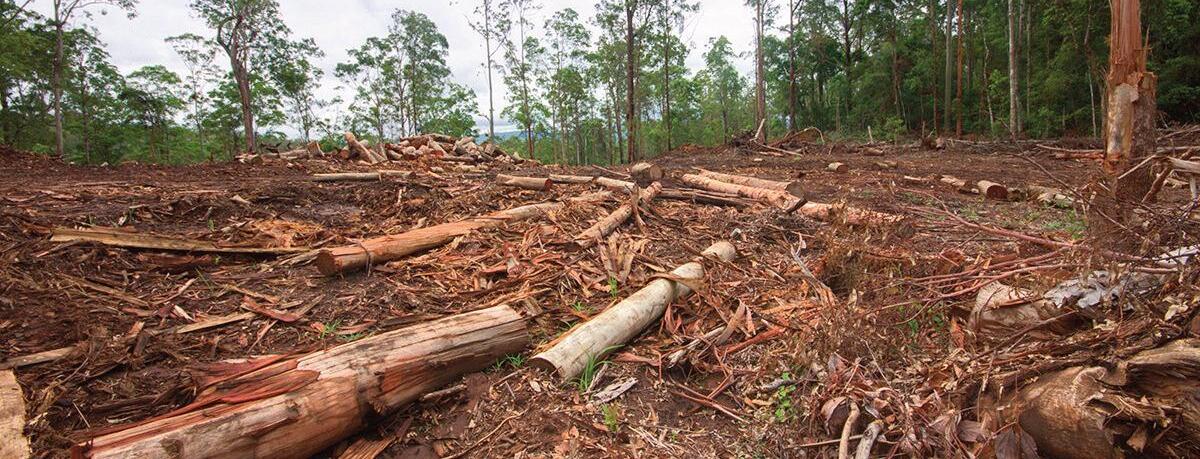
forests and pastures, serve as another example of how vulnerable these ecosystems are COMMUNITY INPUT AND PRESERVATION ACTIVITIES: Locals are speaking out more and more about the damage to the environment Locals in Swat have staged demonstrations and even petitioned the Peshawar
Aerial supremacy
n
and Damage Advocacy: Pakistan strongly advocates for climate justice urging wealthy nations to pay for the damage caused by climate change in vulnerable countries like Pakistan
The United Nations has recognized the vulnerability of northern Pakistan and supports action through:
n
n Projects & Responses: Pakistan launched the GLOF II Project (with UNDP and Green Climate Fund) to monitor and reduce the risks of glacial lake floods
5-generation fighter jet making it clear that it is always the man behind the machine who makes the difference MUHAMMAD MUZAMMIL HASSAN KHAN ISLAMABAD
Urban decay
THE uncollected garbage in residential areas is an issue that has never been given due attention The sight
history Collective action, informed policies, and unwavering commitment are imperative to safeguard this ecological treasure The writer is a freelance columnist
Small-scale tree cutting for firewood or farmland may seem minor, but repeated across thousands of communities, itÊs trigg ering local climate shifts: hotter days, long er dr y spells, soil erosion, and the loss of traditional crop-suppor ting microclimates This form of deforestation escapes satellite tracking, lacks policy attention, and is slowly disconnecting rural communities from tree culture and stewardship
Ghulam Fatima


Iby India one that not only seeks to eliminate Pakistan-aligned Kashmiri militants but also aims to destabilize Balochistan and undermine the China-Pakistan Economic Corridor (CPEC) Sarah Adam s whistleblowing reveals a two-pronged covert war being waged by India On one front, India is reportedly collaborating with Taliban factions to assassinate Kashmiri militants on Pakistani soil specifically those aligned with Pakistan s military and intelligence services On the second front India is accused of utilizing Afghan soil and TTP (Tehrik-i-Taliban Pakistan) infrastructure to arm and finance Baloch separatists targeting Pakistan’s territorial integrity and its most vital economic artery: CPEC
According to Sarah Adam 18 senior Kashmiri figures affiliated with groups like Lashkar-e-Taiba, Jaish-e-Mohammed, Hizbul Mujahideen, and Al-Badr Mujahideen have been systematically eliminated or targeted in recent months by Taliban-linked operatives Harakat-ul-Mujahideen remains conspicuously untouched underscoring a selective strategy likely driven by historical ties between Taliban leader Haibatullah Akhundzada and Harakat founder Fazl-ur-Rahman Khalil Adam argues that India’s use of Taliban infrastructure is not merely tactical it is strategic By removing the “old guard” of Kashmiri militants who are loyal to Pakistan s institutional framework India and its Taliban collaborators are paving the way for a new generation of militants fighters indoctrinated in the ideological warfare of the Taliban and Al-Qaeda These emerging actors shaped in the fires of Afghanistan’s post-occupation resistance reject diplomacy borders and national loyalty They envision not political autonomy but an Islamic emi-
rate in Kashmir, formed through unrelenting, decentralized jihad Their loyalties lie not with Rawalpindi or Islamabad, but with global extremist agendas
The geopolitical implications are worsened by the fact that this insurgency is being indirectly financed by Western taxpayers
Since 2021 the U S and the UN have funneled over $11 billion in humanitarian aid to Afghanistan Intended for civilian relief, much of this aid is reportedly siphoned off by the Taliban through taxes coercion and diversion tactics and then repurposed to fund regional militant operations including those targeting Pakistan Despite efforts in the U S Congress to introduce accountability measures such as the stalled Protecting Death Act no meaningful action has been taken to plug these financial leaks Sarah Adam calls this a case of strategic blindness warning that Western aid is unintentionally funding the next regional war Adam describes India s strategy as a classic case of short-term gain, long-term catastrophe By weaponizing the Taliban against Pakistani interests, India may have scored a few tactical wins but it is also creating a monster it cannot control The second-tier Kashmiri leadership now being cultivated is deeply radical bound not by nationalism but by jihadist ideology And while Pakistan may be the immediate target, India will not be immune to their long-term plans
The Taliban and Al-Qaeda-aligned fighters once fully entrenched will have no qualms about shifting their attention toward India particularly in Kashmir Their transnational agenda doesn t distinguish between India and Pakistan; both are seen as secular enemies obstructing their vision of Islamic rule
One of the most alarming outcomes Sarah Adam highlights is the increased risk of accidental war Given the current volatility in India-Pakistan relations even a small third-party terrorist strike could ignite a mas-
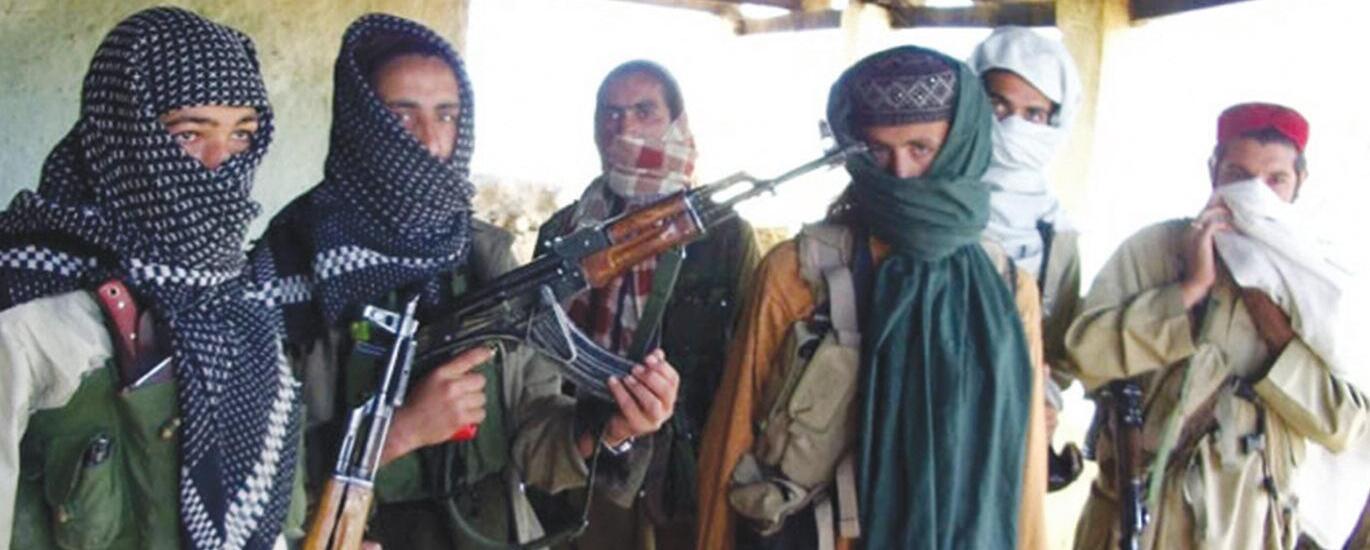
sive military confrontation With both states on hair-trigger alert a misattributed attack could spiral into a catastrophic war not between nations by intent but orchestrated by extremist groups for mutual destruction Adam calls this scenario killing two birds with one stone, where radical groups manipulate mistrust between India and Pakistan to fuel regional chaos and ideological expansion Sarah Adam’s revelations extend beyond Kashmir India is also financing training and arming Baloch separatists via TTP networks operating from Afghan soil These militants, under the guise of freedom fighters, have been responsible for killing Pakistani soldiers, police, and civilians, including fellow Baloch who support federal integration and CPEC development India s objective is clear: destabilize Balochistan interrupt CPEC s infrastructure rollout, and cripple Pakistan s economic lifeline Projects like Gwadar Port, Gwadar International Airport, and transprovincial road links all essential compo-
nents of CPEC are under constant threat from Indian-backed militants But this strategy is also on the brink of collapse With growing Afghan interest in joining CPEC and the Taliban regime recognizing the economic and geopolitical advantages of aligning with China and Pakistan, there is a strong chance that the Taliban will pivot toward protecting CPEC rather than attacking it Sarah Adam s testimony is not just intelligence it is a strategic roadmap for Pakistan s next moves Islamabad must act swiftly to internationalize Adam s findings by presenting them at the United Nations, the Organization of Islamic Cooperation (OIC) the European Union and in key world capitals It must engage with the Taliban-led government in Kabul to dismantle Indian-backed militant camps and cut off funding channels to the TTP Domestically, Pakistan should secure all CPEC zones through enhanced surveillance, deploy advanced technology to
Adam describes IndiaÊs strategy as a classic case of shor t-term gain, long-term catastrophe By weaponizing the Taliban against Pakistani interests, India may have scored a few tactical wins, but it is also creating a monster it cannot control The second-tier Kashmiri leadership now being cultivated is deeply radical, bound not by nationalism but by jihadist ideology And while Pakistan may be the immediate targ et, India will not be immune to their long-term plans
From Assam to Har yana, arbitrar y arrests of social media users make a mocker y of the constitution

reasons

near
in many parts of the world First, wars destroy agricultural and food distribution systems This is the most obvious creator of hunger This is the reason why there is famine in Sudan a country that has the largest land area for farming in all of Africa and if there were no war – could become the breadbasket of Africa Despite the war, Sudan is the world s largest exporter of oily seeds (groundnuts, safflower, sesame, soybean, and sunflower) Around 80 per cent of the world’s gum Arabic is produced in Sudan’s countryside But most fields cannot be tended and many of the farmers have been forced off the land or forced to pick up a gun because of war Second an ugly old habit of waste remains with us One-fifth of all our food is lost or wasted (the equivalent of one billion meals a day), twothirds of all consumption-level waste takes place in the richer countries and 60 per cent of global food waste happens at the household level In the richer countries most food waste happens at the retail and consumer stages largely because of the high level of processing and packaging as well as plate waste in households and restaurants In the poorer countries, most food waste takes place at the point of production (due to bad weather pests and disease) and in storage (due to poor facilities with inadequate refrigeration and inefficient transportation systems) Third, the main reason why people do not eat is that they do not have the money to eat Inequality, in other words, is
kind of fatalism which makes it difficult for the impoverished person to explain their situation Cold statistics alone do not explain to the impoverished the reality of their circumstances which they already know very well Sometimes it is poetry that is best able to articulate the capitalist structure of poverty and the impact it has on the human spirit Nicolás Guillén (1902–1989) was one of the greatest Cuban poets both before and after the revolution In 1931, he published the poem ‘Caña’ (Sugarcane) in his collection Sóngoro Cosongo a title based on the sound of the Afro-Cuban drums: The Black man beside the canefield The Yankee atop the canefield The land beneath the canefield Blood that slips away from us! Isn’t that the truth?
If you want to end hunger you must end poverty In 2021 the Chinese people ended absolute poverty in their country By November 2025, the people of Kerala, India, will have ended extreme poverty, one year ahead of their target date Vietnam is on the road to eliminating absolute poverty This was also the ambition of Burkina Faso under Thomas Sankara (1949–1987) and has been reborn under the country s new leader Captain Ibrahim Traoré Not through charity or foreign aid, but through self-reliance At the National Conference for the Committees for the Defence of the Revolution in Ouagadougou on April 4, 1986, Sankara declared ‘We must succeed in producing more producing more because it s natural that he who feeds you also imposes his will In 2023 Traoré raised Sankara s spirit and said Our predecessors taught us one thing: a slave who cannot assume his own revolt does not deserve to be pitied We do not feel sorry for ourselves, we do not ask anyone to feel sorry for us The people of Burkina Faso have decided to fight to fight against terrorism in order to relaunch their development The people of Burkina Faso today he added are asking the following questions: We do not understand how Africa, with so much wealth on our soil, with generous nature, water, sunshine in abundance, how Africa is today the poorest continent Africa is a hungry continent And how come there are heads of state all over the world begging? These are the questions we are asking ourselves and we have no answers so far
Muslims When the Supreme Court granted Mahmudabad interim bail on May 21 Justice Surya Kant declared that the professor should have used neutral language rather than using words with dual meaning On Friday, the Kolkata police travelled to Gurugram to arrest 22-year-old Sharmishtha Panoli, an Instagram influencer and law student, for a video posted on social media that allegedly hurt religious sentiments In the video, which Panoli deleted after a backlash online she questioned the silence of Bollywood celebrities on the military operation and also made remarks about Islam Bharatiya Janata Party MP actress Kangana Ranaut called for Panoli to be released immediately, despite the unpleasant words she used in her video The language used in the video was distasteful and far from being “neutral” – but that should not matter In these actions it has become clear that there is a heavy price to pay for contrariness
QamaR BaShiR

HA J PILGRIMS GATHER IN MAKK AH UNDER SCORCHING DESERT SUN




leaders gathering scheduled for June 15-17 in Kananaskis Alberta The absence comes amid strained relations between Canada and India, triggered by allegations of Indian involvement in the 2023 killing of pro-Khalistan separatist Hardeep Singh Nijjar on Canadian soil Ottawa has accused Indian
agents of orchestrating the murder a claim that led to a diplomatic fallout and the expulsion of six Indian diplomats In response Canada further accused Indian Home Affairs Minister Amit Shah of being involved in plotting against Sikh separatists abroad further complicating the bilateral relationship India has been a regular participant in the G7 summit since 2019, but this year s exclusion highlights the growing tensions between the two nations With no formal invitation extended to Modi India s absence from the summit reflects the continuing strain in diplomatic ties
TEHRAN A G E N C I E S
Iran is poised to reject a US proposal to end a
decades-long nuclear dispute an Iranian diplomat said on Monday, slamming it as a non-starter that fails to address Tehran s interests and leaves Washington’s stance on uranium enrichment unchanged
“Iran is drafting a negative response to the US proposal which could be interpreted as a rejection of the US offer the senior diplomat who is close to Iran s negotiating team told Reuters
The US proposal for a new nuclear deal was presented to Iran on Saturday by Oman s Foreign Min-
ister Sayyid Badr Albusaidi who was on a short visit to Tehran and has been mediating nuclear talks between Tehran and Washington
But after five rounds of talks between Iranian Foreign Minister Abbas Araqchi and President Donald Trump’s Middle East envoy Steve Witkoff to resolve the nuclear standoff, many issues remain unresolved
Among clashing red lines is Iran’s rejection of a US demand that Tehran commit to scrapping uranium enrichment viewed as a potential pathway to developing nuclear bombs Tehran says it wants to master nuclear technology for peaceful purposes and has long denied accusations by Western powers that it is seeking to develop nuclear weapons I
Israel ‘without a doubt ’ committed war crimes in Gaza:
WASHINGTON
A G E N C I E S
A former senior US official has said Israel has “without a doubt” committed war crimes in Gaza revealing internal disagreements within the Biden administration over Washington s handling of the conflict In an interview with the Trump 100 podcast, Matthew Miller, who served as the State Department spokesperson under President Joe Biden offered an unusually candid assessment of the administration s foreign policy challenges particularly surrounding Israel s military operations in Gaza
“It is without a doubt true that Israel
Mathew Miller
has committed war crimes,” Mr Miller said, adding that Israeli soldiers were not being held accountable and that there were ongoing policy disagreements inside the administration over the US-Israel relationship Mr Miller served from 2023 until the end of Mr Biden s term and was responsible for publicly defending US foreign policy decisions including during the Israel-Gaza conflict and the war in Ukraine
Speaking after leaving office Mr Miller disclosed that there were both small and big disagreements over how to manage relations with Israel, especially during the 2024 escalation in Gaza




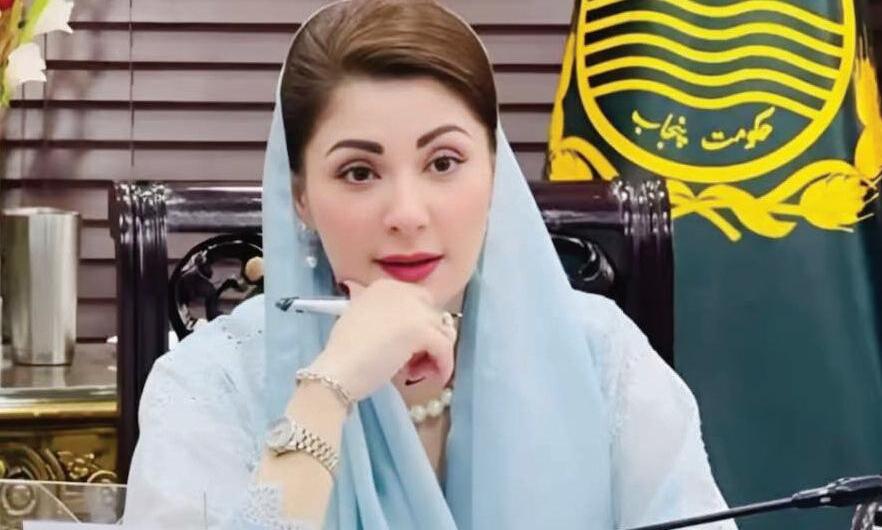

by-election She stated “The people of Pakistan have completely rejected the politics of abuse unrest and chaos and have endorsed Maryam Nawaz s vision of public service She added, Even the supporters of Prisoner No 804 in Sambrial were chanting, ‘We voted for PMLN ’ which is clear evidence of the collapse of PTI s narrative The Minister said that wherever PTI went in Sambrial they were greeted with slogans of "Ghari Chor" The people now know who is genuinely serving the country and who is just busy blustering on social media ” These comments were made by Azma Bokhari during a press conference at DGPR
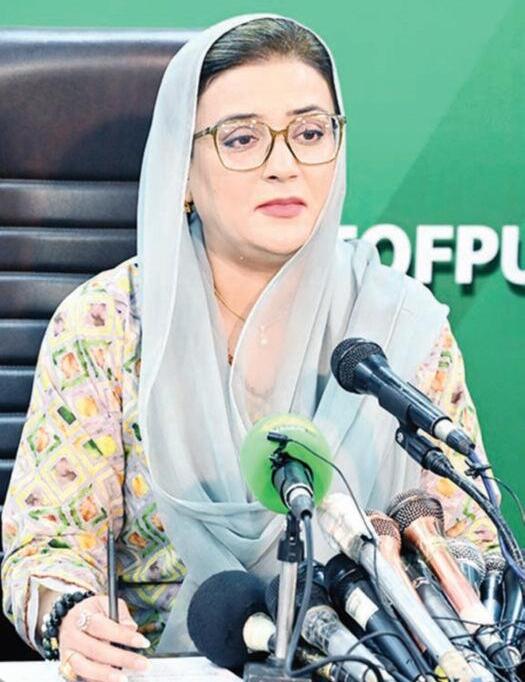
She said The public has rejected the dishonest contractor woman and the politics based on theft and accusations She criticized a particular party for “crying foul” after every election loss “First they claim victory and by afternoon their crying drama begins It s time they changed their script She further added Under Maryam Nawaz s leadership,
women have received strong representation empowering Pakistani women further Responding to PTI lawyers objections to the election, Azma Bokhari dismissed them as baseless, stating, “Salman Akram Raja called it a test case so let me say that PML-N has passed this test in style with a lead of over 38 000 votes She praised the transparency of the

Türkiye’s Night Museums Projec t Opens 27 Historic Sites for Noc turnal Visits


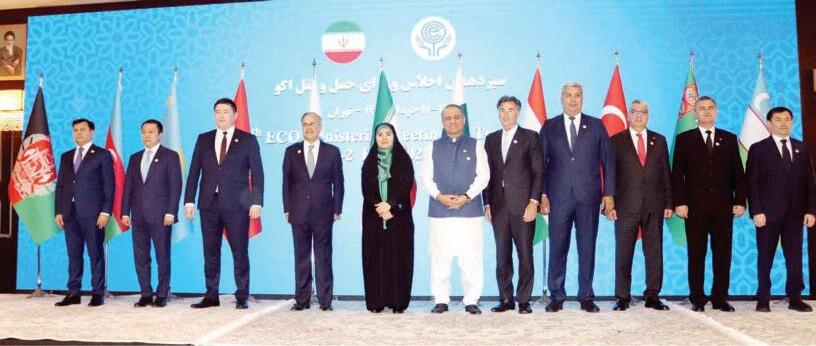

Tstructure which will be presented to the PCC for review at its next session Stakeholders in attendance contributed suggestions aimed at fostering a regulatory environment that supports innovation, ensures transparency, and prioritizes investor protection, while also encouraging the responsible adoption of blockchain technologies and promoting broader financial inclusion Finance Minister Aurangzeb expressed appreciation for the input shared by all participants and reiterated the government s commitment to developing a future-ready financial infrastructure that balances innovation with financial stability and regulatory safeguards Main suspect arrested after video of citizen assaulted
In line with the Finance Minister Muhammad Aurangzeb s vision for a cashless economy this move is part of a broader strategy to encourage digital payments, reduce the reliance on cash, streamline tax collection and curb the informal economy The government intends to impose
ducing cash-based transactions In addition to changes in the fuel sector the government plans to impose an additional 2% General Sales Tax (GST) on cash transactions made by importers and manufacturers, while standard 18% GST will apply to digital payments This proposal is expected to create a financial incentive for businesses and consumers to adopt digital payment systems FBR Chairman Rashid Mehmood Langrial confirmed that the government is focused on moving towards a cashless economy but declined to provide further details ahead of the budget
While the initiative may appear similar to the earlier filer and non-filer policies for banking transactions, sources suggest this new plan could have a broader
impact by targeting small and informal businesses as well The upcoming Finance Bill 2025-26 will mandate that businesses of all sizes offer both cash and digital payment options with cash transactions carrying an additional tax or fee Unlike point-ofsale systems that require additional equipment, the new system will also allow payments through simple digital solutions like QR codes Countries such as India Indonesia and Bangladesh have seen success with similar approaches and the Pakistani government aims to replicate that success Finance Minister Muhammad Aurangzeb has repeatedly emphasized the importance of digitising the economy citing the potential to unlock over Rs9 3 trillion currently in circulation and to reduce tax evasion In a broader context, the government s anti-cash push is aligned with other initiatives, such as digitally tracking petroleum products from import to retail sales to prevent smuggling and adulteration a practice that causes significant revenue losses, estimated at Rs300-500 billion annually
PROFIT
A Z I Z B U N E R I
Advisor to the Chief Minister of Khyber Pakhtunkhwa on Finance and Inter-Provincial Coordination Muzzammil Aslam stated that according to the federal government there has been a 15% decline in the production of major crops, which includes a 30% decline in cotton production alone As a result, an additional five billion dollars will need to be spent on cotton imports Similarly due to the drop in wheat production 3 billion dollars will be spent on wheat imports Overall, the decrease in agricultural output will force Pakistan to import goods worth $10 billion representing a loss of Rs 2 800 billion to the country and its farmers
He said the government had claimed that the inflation rate was 4 5% or 4 7%, but it is now admitting that inflation will rise to 7 5% next year
Muzzammil Aslam noted that Pakistan s GDP this year was Rs 114 trillion and next year it s expected to increase to Rs 129 trillion Despite this, only Rs 1 trillion has been allocated for development expenditures, and the
federal government is not launching any new projects Likewise, no new projects have been allocated to the provinces Of the Rs 1 trillion development budget Rs 120 billion is from savings that were not provided as fuel subsidies which are being used to build roads in Balochistan This means that the actual Public Sector Development Program (PSDP) is only Rs 880 billion
He further stated that under the Uraan Pakistan program discussions were held on sports, water, and the environment, and Rs 65 billion was initially allocated to higher education This has now been slashed to Rs 45 billion without any consultation with the provinces
Aslam pointed out that the government had earlier said that projects which are more than 75% complete would be prioritized, yet two road projects in Khyber Pakhtunkhwa that were over 90% complete have been deleted which he called a clear injustice and raised during today s meeting
He questioned, If the government claims inflation is being brought down to 1%, why is the interest rate still at 11%” He said that Rs 2 to 2 5 trillion in savings from
interest payments this year should be redirected to development projects but it is not happening He said that according to the Planning Ministry 118 development projects have been scrapped while the government is claiming that the growth rate will be 4 2% next year, with inflation at 7 5% Exports will not increase significantly, but imports will rise and $39 5 billion in remittance has been estimated Regarding allocations he said out of Rs 1 trillion PSDP Khyber Pakhtunkhwa will receive only Rs 540 million, while Balochistan will get Rs 120 billion plus Rs 20 billion more Sindh has been allocated Rs 47 1 billion Gilgit-

